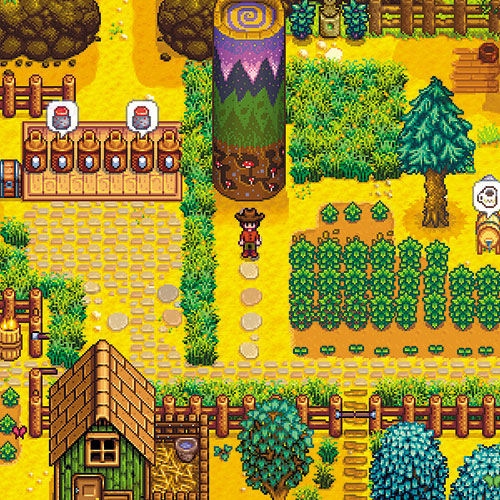PaigeFTW: The Beautiful Paradox of ‘Stardew Valley’

It was almost precisely six months ago that I wrote a column extolling the virtues of Harvest Moon, that slow-paced, sunshine-filled farm simulator that mostly soldiers on in Nintendo 3DS titles today.
The new kid on the farm sim scene, which I briefly mentioned, is Stardew Valley. I had heard nothing but praise for its homage to and reinvention of the classic Harvest Moon formula. I even had purchased the game a while back during a Steam sale, though I left it alone — fearing, perhaps, my innate weakness for resource management games.
But the other day I was between games and I was like, oh, what can it hurt to just try it for a little while?
You can guess that a “little while” was a lot longer than that.
The appeal of this game is difficult to put into words. But in a world of pressing objectives and grandiose stories, it is refreshing to have a little piece of serenity where goals can wait. I at first worried when I failed to greet every villager during my first day, but there were no consequences. The quest waits. No one is offended. Quickly, you slide into routines of watering crops, clearing fallow land, and maintaining a small ranch.
The magic is in learning to condense those routines to take less time and yield greater rewards. In-game energy and real-life time are both precious, fleeting commodities. And yet there is no pressure at all to improve quickly. You can’t, in any case. It requires time and patience to hunt resources and upgrade tools to make those incremental changes. Stardew Valley is a ruthlessly pragmatic genre that requires patience before all other virtues. It is nothing short of a paradox — and an addictive one, too.
The game’s very premise is, ironically, about peeling away from the monotonous drone of daily life and running away to the invigorating purity of the countryside. Yet, its monotony is its greatest strength.
It’s a philosophy you can think about as you wake up on Year 2, Spring, Day 23.











